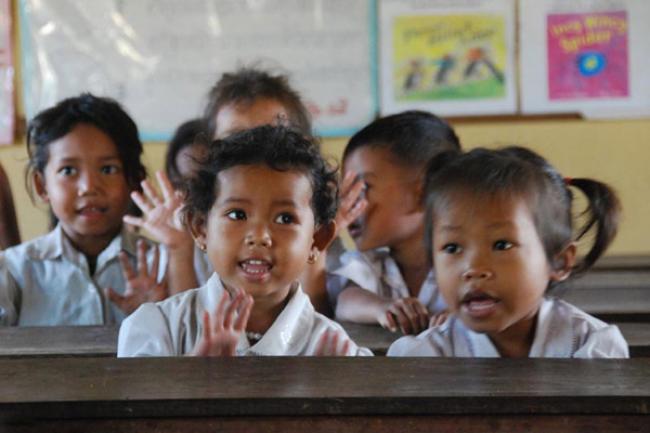23 Oct 2014

The first assessment of its kind in East Asia and the Pacific region, Cambodia’s Violence against Children Survey (CVACS) asked 2,376 children and young people aged 13 to 24 from across the country about their experiences of physical, emotional and sexual violence before the age of 18.
The report – coordinated by the UN Children’s Fund (UNICEF) and conducted by the Government of Cambodia – discovered that, along with the vast scope of the violence, those children who were physically abused were harmed by people they knew and trusted while those who were sexually abused were often victimized by friends and neighbours, as opposed to strangers. The report also highlighted that mothers and male teachers were most likely to be the perpetrators of physical violence against children.
Speaking at the report’s launch in the Cambodian capital, Phnom Penh, Marta Santos Pais, the UN Secretary-General’s Special Representative on Violence against Children, praised the Government for conducting the “ground-breaking” survey and encouraged it to integrate the findings into its overall policy agenda.
“The elimination of all forms of violence against children must be a core indicator of national social improvement,” Ms. Santos Pais declared.
“It should be a reference for all Government sectors, for the budget and for relevant coordinating mechanisms, with a clear monitoring and evaluation plan to assess progress and maintain momentum,” she added.
According to CVACS, the impact violence has on children resonates long after the abuse has ended and can affect the quality of their lives in the long-term. Many young victims experience short term health consequences and risk taking behaviour, with those who experience violence more likely to report moderate mental distress, sexually transmitted infections, self-harm and suicidal thoughts. Other physical and mental health problems may linger on throughout their lives.
Santos Pais outlined six steps which she said would help governments address violence against children and work to eliminate it outright, including the enacting of an explicit legal ban on violence against children backed by effective enforcement; increased efforts to make violence against children socially unacceptable; ensuring the social inclusion of girls and boys who are at special risk; building or enhancing strong data systems and sound evidence to prevent and address violence against children; and joining with other governments to ensure the protection of children from violence as part of the post-2015 international development agenda.
“The economic returns from investment in early child development are now well established, yet violence severely limits young children from reaching their full potential resulting in huge losses to society,” Santos Pais continued.
“Ending violence is an ethical imperative, but it also makes economic sense as the figures on the costs of violence show.”
Children in school in Cambodia. Photo: UNICEF Cambodia/Andy Brown